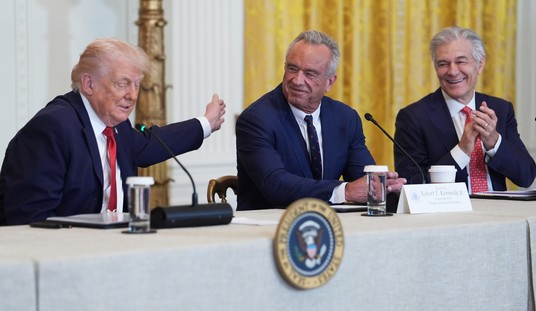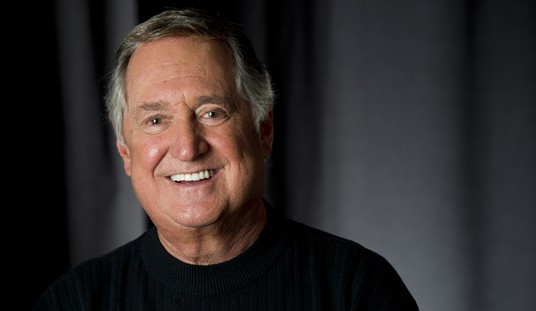=========
=========
Promoted from the diaries by streiff. Promotion does not imply endorsement.
=========
=========
- conceited and overconfident of knowledge but poorly informed and immature; a sophomoric argument
- lacking in maturity, taste, or judgment; sophomoric humor
And apparently, we have had a past government of sophomores.
My (sadly late) best friend and I met in the coffee shop of the University of Kentucky Student Center in the fall of 1974, and wound up having a discussion concerning whether a nuclear weapon detonated underwater off of Los Angeles would generate a tsunami. Sophomoric, right? As college sophomores, and juniors, and even seniors, we and our larger circle of friends had plenty of discussions, in which the problems of the whole world were solved. Alas! the rest of the world did not recognize our obvious wisdom, and the problems of the world continued without our guidance and brilliant solutions.
I’d like to think that in the intervening years, we all did something really radical and grew up. I, at least, followed the traditional path, and married, had children, and began my career. It seems to me, however, that some people who were very successful in their careers never did grow up.
In the transcript for an appearance by former Acting Director of the FBI, Andrew McCabe, on CBS’ 60 Minutes, he discussed a sophomoric discussion with Deputy Attorney General Rod Rosenstein:
ANDREW MCCABE: Discussion of the 25th Amendment was, was simply Rod raised the issue and discussed it with me in the context of thinking about how many other cabinet officials might support such an effort.
SCOTT PELLEY: Rosenstein was actually openly talking about whether there was a majority of the cabinet who would vote to remove the president.
MCCABE: That’s correct. Counting votes or possible votes.
PELLEY: What seemed to be coursing through the mind of the deputy attorney general was getting rid of the president of the United States–
MCCABE: –Well–
PELLEY: –One way or another.
MCCABE: I can’t confirm that. But what I can say is the deputy attorney general was definitely very concerned about the president, about his capacity and about his intent at that point in time.
PELLEY: How did he bring up the idea of the 25th Amendment to you?
MCCABE: Honestly, I don’t remember. He– it was just another kinda topic that he jumped to in the midst of– of– of a wide-ranging conversation.
PELLEY: Seriously? (LAUGH) Just—
MCCABE : –Yeah–
PELLEY: –Another topic
MCCABE: Yeah.
In a preview of the interview Thursday on “CBS This Morning,” Pelley described what was discussed in the interview. “There were meetings at the Justice Department at which it was discussed whether the vice president and a majority of the Cabinet could be brought together to remove the president of the United States under the 25th Amendment,” he said.
“They were counting noses,” Pelley explained. “Not asking Cabinet members whether they would vote for or against removing [him]. But they were speculating, ‘This person would be with us. That person would not be.’ They were counting noses in that effort.”
McCabe’s spokesperson, Melissa Schwartz, said in a statement to CBS News’ Paula Reid on Friday that “at no time did Mr. McCabe participate in any extended discussions about the use of the 25th Amendment, nor is he aware of any such discussions.”
“He was present and participated in a discussion that included a comment by Deputy Attorney General Rod Rosenstein regarding the 25th Amendment,” Schwartz said, but she added this anecdote was not included in his book.
Article 4 of the 25th Amendment specifies:
Section 4. Whenever the Vice President and a majority of either the principal officers of the executive departments or of such other body as Congress may by law provide, transmit to the President pro tempore of the Senate and the Speaker of the House of Representatives their written declaration that the President is unable to discharge the powers and duties of his office, the Vice President shall immediately assume the powers and duties of the office as Acting President.
Thereafter, when the President transmits to the President pro tempore of the Senate and the Speaker of the House of Representatives his written declaration that no inability exists, he shall resume the powers and duties of his office unless the Vice President and a majority of either the principal officers of the executive department or of such other body as Congress may by law provide, transmit within four days to the President pro tempore of the Senate and the Speaker of the House of Representatives their written declaration that the President is unable to discharge the powers and duties of his office. Thereupon Congress shall decide the issue, assembling within forty-eight hours for that purpose if not in session. If the Congress, within twenty-one days after receipt of the latter written declaration, or, if Congress is not in session, within twenty-one days after Congress is required to assemble, determines by two-thirds vote of both Houses that the President is unable to discharge the powers and duties of his office, the Vice President shall continue to discharge the same as Acting President; otherwise, the President shall resume the powers and duties of his office.
The provisions of Section 4 exist in the event that the President becomes incapacitated or deranged; they do not exist simply because some people might disagree with his policies. That the esteemed Mr McCabe was discussing it, at least if it was under discussion more seriously than college coffeehouse bloviating, indicates that he either did not understand the purpose of the Amendment, or he actually regarded policy differences as evidence of derangement.
Even if Russian machinations were the tipping point which kept Hillary Clinton a private citizen — and if so, we owe Vladimir Putin a debt of gratitude which can never be fully repaid — such does not meet the language or purpose of the Amendment, which allow for the Vice President to assume presidential powers only after proper certification “that the President is unable to discharge the powers and duties of his office.” Policy differences or even the ‘wrong’ man being elected due to whatever do not make the elected President unable to discharge his duties.
The only conclusion that I can draw is that Messrs Rosenstein and McCabe were discussing a coup d’etat. Again, had it been just sophomoric ‘what if’ chatter, it’s hardly serious, but if it was unserious, why did Mr McCabe bring it up on national television? Had it just been a college coffeehouse discussion, what was the “counting noses” part?
Both men are listed as being Republicans.
Robert Stacy McCain noted Mr McCabe’s statement:
I was speaking to the man who had just run for the presidency and just won the election for the presidency. And who might have done so with the aid of the government of Russia, our most formidable adversary on the world stage,” McCabe said of the meeting with President Trump. “And that was something that troubled me greatly.
Mr McCain attributed Mr McCabe’s attitude as being, in effect, deep state, the notion that both Republicans and Democrats among the elites who pervade the government believe that it is their general notions which should inform governing power, regardless of what the commoners might wish. Brexit appalled them, in tghat it was a body blow against the international norms the elite saw as the general good, and the election of Donald Trump was the next.
One wonders why Mr Rosenstein ever accepted President Trump’s nomination to become Deputy Attorney General in the first place, being as appalled as he was by Mr Trump’s stated policies. Mr McCain again:
America’s elite foreign-policy establishment considers the European Union our major partner in global hegemony, whereas Putin views the E.U. as an anti-Russian conspiracy, principally led by Germany, to limit Russia’s traditional sphere of influence in eastern Europe. . . . .
This obsession with preserving the European Union explains why the same people who hate Trump also oppose “Brexit,” because a re-assertion of British sovereignty threatens the E.U.-centric mentality of the elite, in quite the same way that Trump’s “America first” approach offends those who want to see the U.S. “lead from behind.” Even though Andrew McCabe was never elected or appointed to any post that would require him to have an opinion on U.S. foreign policy, it is obvious that the former deputy FBI director had absorbed the establishment elite’s worldview, including their paranoid fear of Russian influence.
“America First” and “Brexit” are two facets of the same gem: the notion that one’s own nation is of greater importance than the well-being of other countries. It should go without saying that most Americans would like to see other nations being prosperous and successful, but that for many of us, this writer certainly included, our desire to see other successful does not equal our desire to see the United States successful and prosperous, to the extent that we would prefer to see the US successful and prosperous even at the expense of other countries. Our desire to welcome immigrants who have skills, and can both support themselves and contribute to our economy does not extend to welcoming those who have no skills, and will be a burden to our welfare systems and the taxpayers. That is what drove the election of Mr Trump, and that is part of what drove Her Majesty’s subjects to vote to leave the European Union.
The elites, the Patricians as I frequently refer to them, are educated men and women, frequently Ivy Leaguers when it comes to government insiders, highly intelligent people, but somehow, some way, their intelligence and education is insufficient to understand the needs and beliefs and goals of the common people, the plebeians. These things are simply outside of their paradigm, and, rather than attempt to extend their understanding — a rather strange attitude coming from purported multiculturalists — they have far too frequently simply turned within themselves, dismissing the concerns of the riff-raff and falling into that first definition of sophomoric: “conceited and overconfident of knowledge but poorly informed and immature.”
That Messrs Rosenstein and McCabe were discussing 25th Amendment notions of somehow pushing aside President Trump because they disliked his policies and underlying philosophy was, at heart, sophomoric; that Mr McCabe admitted to such coffeehouse discussions was just plain stupid. At least they do not seem to have pushed it beyond that stupidity, and into actual conspiracy. As much as I would like to call this treasonous, stupidity is not criminal, but the stupid should be exposed for what they really are.
____________________________________
Cross-posted on The First Street Journal.













Join the conversation as a VIP Member